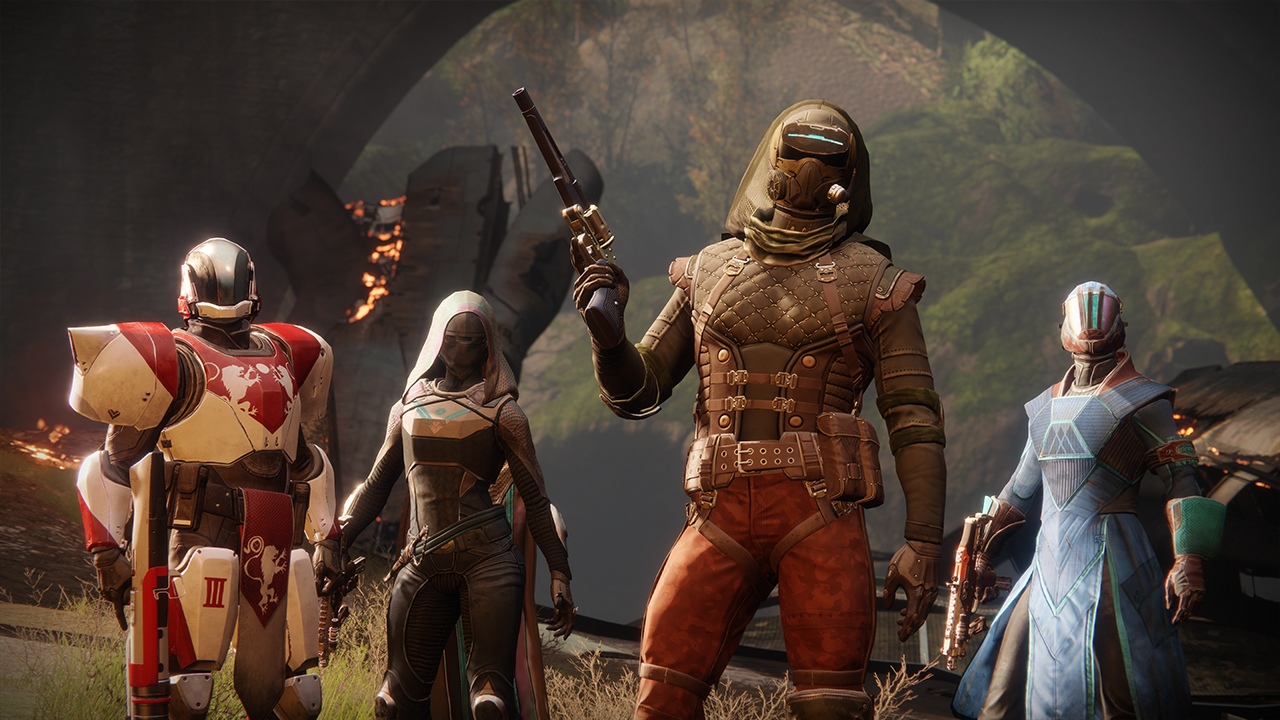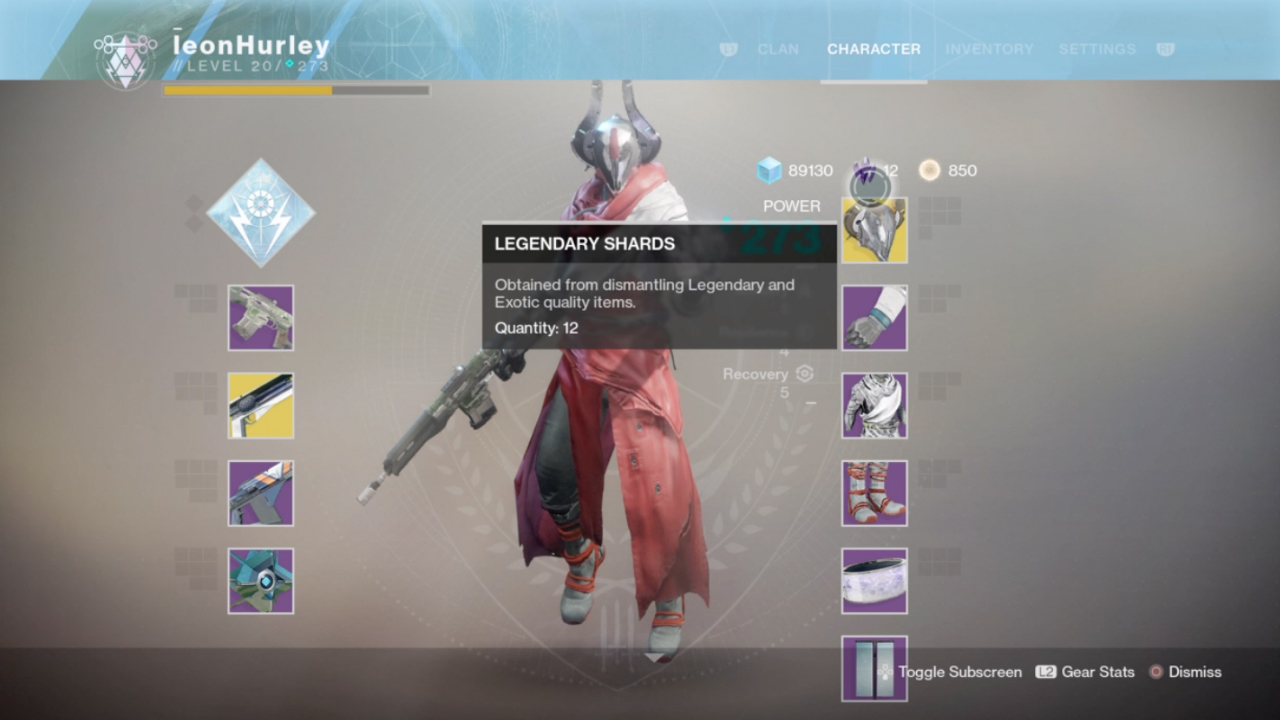GamesRadar+ Verdict
Evolved beyond what anyone imagined, Destiny 2 realises the FPS-RPG dream with a richness, warmth, and player-minded benevolence that needs to be played to be truly understood.
Pros
- +
A genuinely stunning, affecting story campaign in a Destiny world that is now truly alive and human
- +
The open-world is now a fully-fleshed RPG, catering to any experience you'd like to explore
- +
The new progress systems are streamlined, friendly, and constantly empowering, whatever paths you choose
Cons
- -
Getting teamed with that one Guardian who never collects Crests in Crucible Supremacy
Why you can trust GamesRadar+
Destiny 2 is a very, very different game to the first, but it’s impossible to tell that without playing it. On a surface glance, everything looks the same, albeit rendered with arrestingly greater detail and vitality. Campaign missions. Strikes. Open-world planets. Public Events. PvP. The bullet-point list reads like business as usual. But this is anything but.
Destiny 2’s radically new personality and philosophy are first laid out in its campaign. Where the first game’s many joys were largely systemic, living within its beautifully honed and deliciously malleable combat and character crafting systems, here, that stuff is ‘just’ the core of something much greater. What we have in Destiny 2’s story campaign is almost incomparable to the first game’s narratively-linked series of escalating arena fights and dungeon crawls. It still makes use of such things, of course, as it cuts a path through Destiny 2’s multi-planet open-world. But what we have here is also a full-blooded, immaculately paced, pure FPS campaign, built with all the story, scale, and set-piece insight Bungie perfected over the 13-year period of its pre-Destiny shooter work.
Destiny 2’s campaign is a hell of a good Halo game, basically. While we expected the quality of dynamic, emergent, cat-and-mouse gunplay exemplified in the first Destiny to ring loud and true through Destiny 2, in truth this sequel has an even louder pulse. Brought to vibrant life by way of many aggressive, upgraded evolutions to enemy types, AI behaviours, and increasingly imaginative, more freeform weapon design, Destiny 2’s core combat is a constantly surprising, demanding, and exhilarating experience, even to those of us who spent upward of 800 hours with the first game. That it now exists in a campaign framework of far greater ambition, in all areas, from escalation to emotion, makes for an engrossing and at times dizzying experience.
The campaign’s last few hours in particular revel in a glorious acceleration of peril, design, ideas and craft. If you need a reminder of why Bungie is such an important studio – hell, if you need a reminder of just why you fell in love with story-driven shooters in the first place – Destiny 2’s campaign is that. With the narrative advantages that come with three years of a persistent, lived-in universe, set upon a raft of background lore than has been studiously pored over for just as long, Destiny 2 nonetheless delivers a story of total immediacy and in-the-moment drama, able to electrify long-term fans without at all leaving newcomers out of the party.
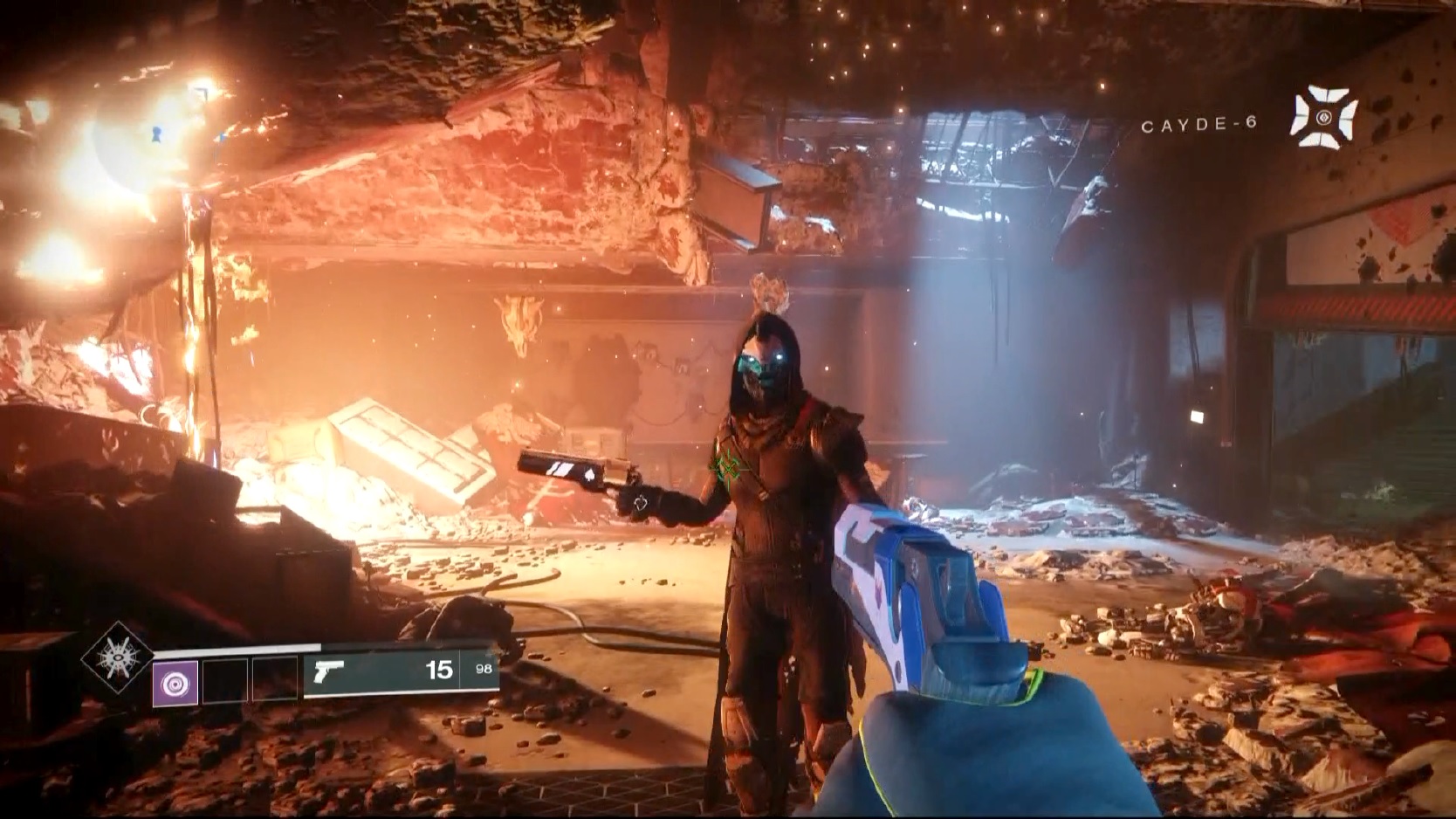
But this, to trot out the inverted commas once again, is ‘just’ the in-road to Destiny 2’s wider world. And it is a world altogether more human, direct, relatable, and immersive than it has ever been before. This is Destiny evolved into something brand new, through a combination of warm, emotive, radically expanded character focus and consistently canny construction. I said in one of my early entries in our review diary that Destiny 2 feels like stepping up to Destiny: The Movie. Andy said that it makes the first game feel like a prototype. A couple of weeks later, both of those statements now stand even stronger than they did when we wrote them.
A world that at times previously felt like it existed as a description of itself is now a real place, that lives, breathes, and matters. New players will find a fantastic and absorbing universe to play in. To stalwart Guardians, the evolution will be an initially strange experience, but a rather beautiful, oddly profound one as well.
But that is, in every sense, just the start.
A literal world of options
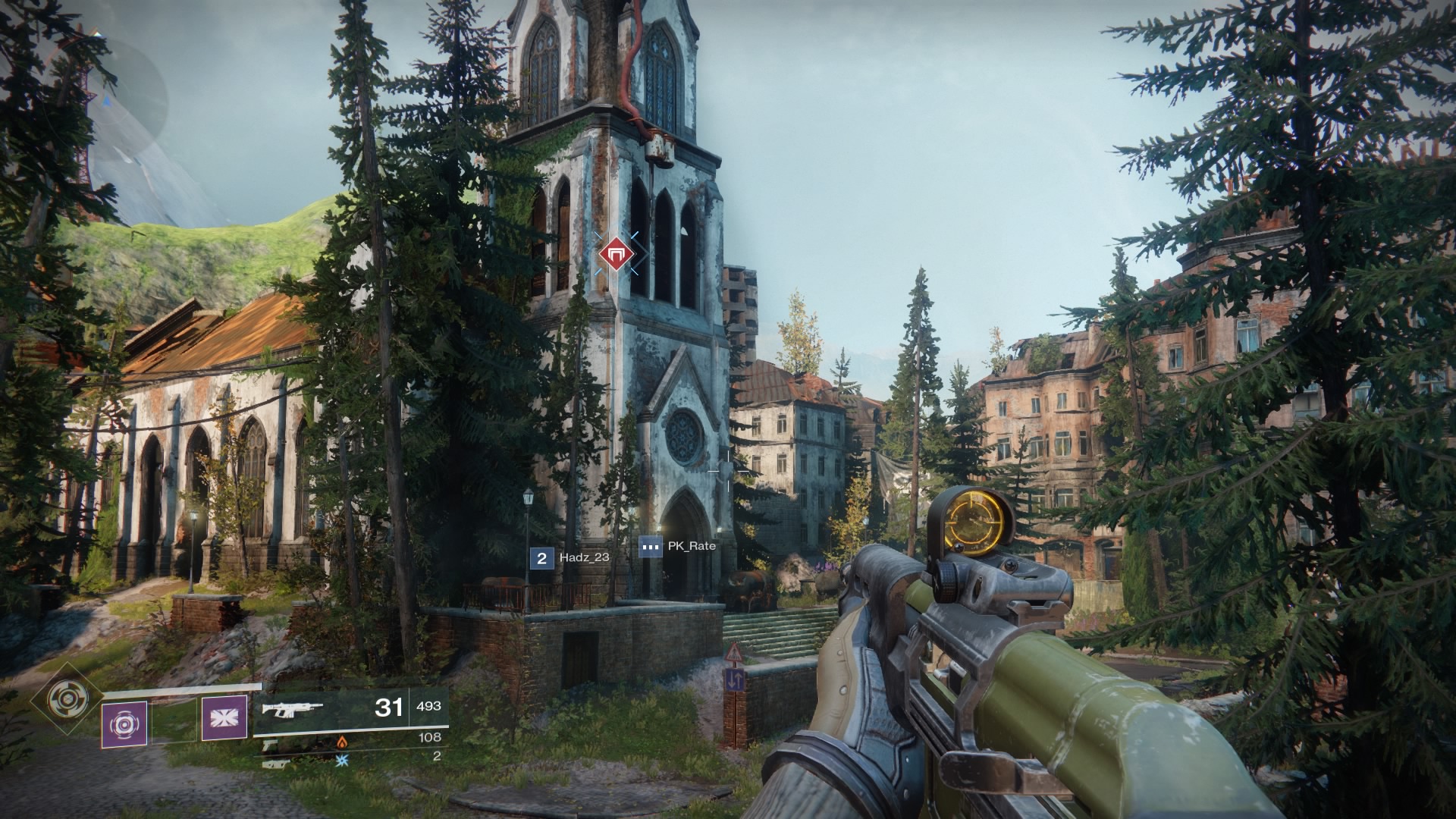
Destiny 2 is such a vast game that I have to break its component parts down individually in order to discuss them, but in truth, Destiny 2’s triumph comes from the fact that they are inseparable. While the campaign is a focused salvo of shock and awe, it rapidly melts and disseminates its influence throughout the open-world. Dense with a steadily expanding, nonlinear array of spin-off story missions (known as Adventures), and later, multi-stage Quest narratives, the world that Destiny 2 builds around its campaign truly delivers the dream of a fully-fleshed, open-world RPG/FPS hybrid.
Although spread over four smaller, self-contained planets rather than one vast map, the richness of Destiny 2’s world blends the options and exploration freedom of a Far Cry with the spiralling, free-form, narratively-driven side-quest structure of a Witcher. But just as good as the breadth and depth of the world is its spirit, which ensures that its experiences come without hierarchy. Destiny 2 is a world of vastly different, organically linked experiences, and it resolutely ensures that all of them are worthwhile, both in the immediately gratifying moment and in terms of the long-term journey of loot and character evolution.
“This is the idea of Destiny evolved and elevated into something it has never been before”
Want perpetual combat and frequent gear drops? The Strike playlist has you covered. But if you wish to potter around at your own pace, exploring side-stories, engaging in dynamic skirmishes, investigating secret areas, and completing challenges and treasure hunts, you can do just as well with that. Destiny 2 is a game that wants you to enjoy whatever you feel like doing at any given time, and it wants you to know that it always approves of your decision. Forget the old days of being mechanically funnelled through specific, ‘elite’ content lists, toward increasingly narrow caches of high-level loot. Destiny 2 is the game you want it to be, whether that’s a rambling, single-player, open-world FPS with a levelling system, a gear-grind focused MMO, a welcoming, co-op hangout, or anything else in between. And for all the wealth of vastly different content that lives in its open-world, it’s the new, stripped-back progress system that really makes everything gel into a single organic whole.
Streamlined, simplified, but far more purposeful and empowering than before, Destiny 2’s Token system, which bestows redeemable, universal gear currency for every activity completed in any given area, ensures that every single event enjoyed – from a hardcore, co-operative Nightfall Strike, to a lore-filled, narrative side-quest, to a meandering, solo hunt for the many Lost Sector mini-dungeons and hidden treasure chests – is equally meaningful, pushing you forward with a real sense of control over your experience. Everything is an investment. Nothing is wasted. Everything pays forward eventually, without demand or coercion.
A journey you’ll want to take
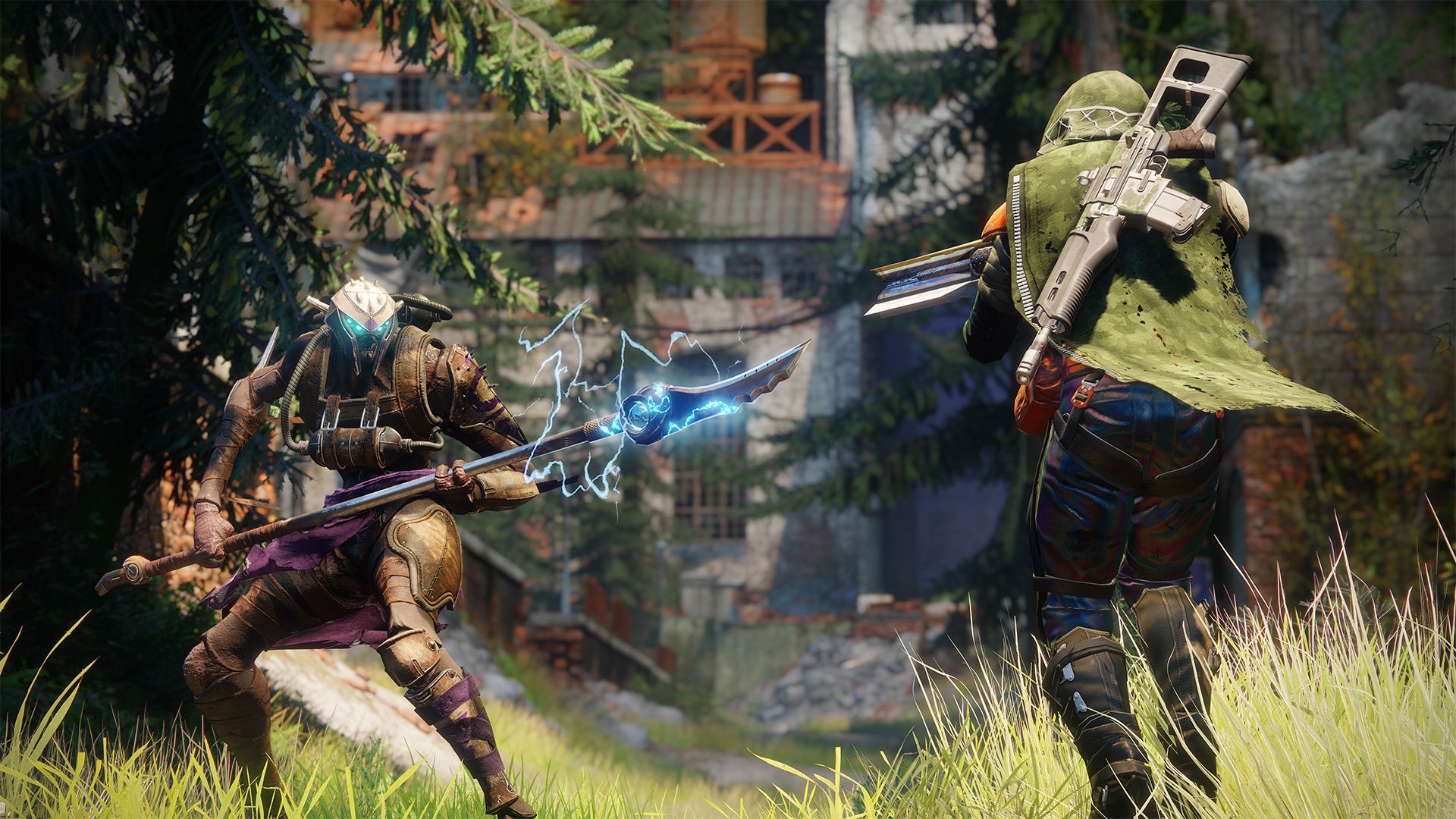
And the way that Destiny 2 reveals its journey, too, is the product of a transformative rethink. Steadily building out the world around its campaign, it quietly introduces its greater scale and possibilities to new players and old alike while holding back any serious hint of the long-term, RPG game until the end of the campaign. All of the big-picture stuff, and the many different ways of tackling it, Destiny 2 leaves until later, bedding each element in a logical narrative off-shoot and ensuring that it only appears at the exact moment the player is ready to embrace it. At times, Destiny 2’s empathy for the player experience is borderline clairvoyant.
With such a rich world and a clear-cut progress system, levelling up in Destiny 2 is about feeding and serving the gameplay experience, not the other way around. The basic trading up of gear leads to new means to earn more special gear. That in turn leads to the means to customise and increase the power of that gear, which leads to access to new activities, and further means of customising and empowering. And the bountiful currency fuel for all of this remains constant, arriving in reward for every move you choose to make, with a generosity that will make players of the first game crick their necks in surprise. Unlike the first Destiny, this is not a game about fighting to reach an arbitrary final number, but one concerned with revealing and discovering new ways to play, that in turn create more new ways to play, along whichever of its many paths you wish to take.
“This is Destiny set free. It’s Destiny democratised. It’s a warm, human, generous Destiny for everyone”
Those paths are paved with design excellence, whichever routes you choose. The combat-intensive Strike missions are now far more than ‘tough levels with boss fights’. Taking inspiration cues from all of the first game’s greatest successes – particularly the experimental, abstract, combat-puzzle extravaganzas of the Raids – Strikes now have unique personality and stand-out demands. A hint of conceptuality even, at times. In one case it might be a boss fight that requires methodical, role-switching, co-operative tactics to best. In another it might be the grand scale of a cinematic, insta-kill obstacle course. Or it might be a dash of darkness-hampered exploration platforming, or a surprisingly dramatic blend of gameplay mechanic and narrative through-line.
This creativity is also rife in the Adventure and Quest missions, which frequently take advantage of their spin-off nature to twist and rework Destiny 2’s gameplay and story beats in some strikingly surprising directions. I’ll spoil nothing, but I will tell you to make sure you absorb everything on the map at some point. The Token system might make it all profitable, but the quality and imagination present make everything thoroughly worthwhile in terms of pure experience.
Destiny 2’s Crucible PvP has had as fundamental a rethink as everything else, and has benefitted just as much. With one-hit kills now a rarity – whether they come from scarcely fuelled Power weapons, or super abilities that now require a great deal more nuance to use effectively – and team sizes reduced to four, the chaos that sometimes hampered the first game’s PvP has entirely left the arena.
Replacing it is a set-up that really lets Destiny 2’s competitive combat shine in a tight, focused, clear, and tactically co-operative format. Playing with a fully communicative Fireteam is a relentless joy, as intellectually stimulating as it is knife-edge exciting. But even when playing pick-up games with randomly match-made players, the clarity of battle both supports and encourages the drum-tight team tactics that make the new Crucible feverishly compulsive and rewarding.
Increasing the challenge, while keeping things simple
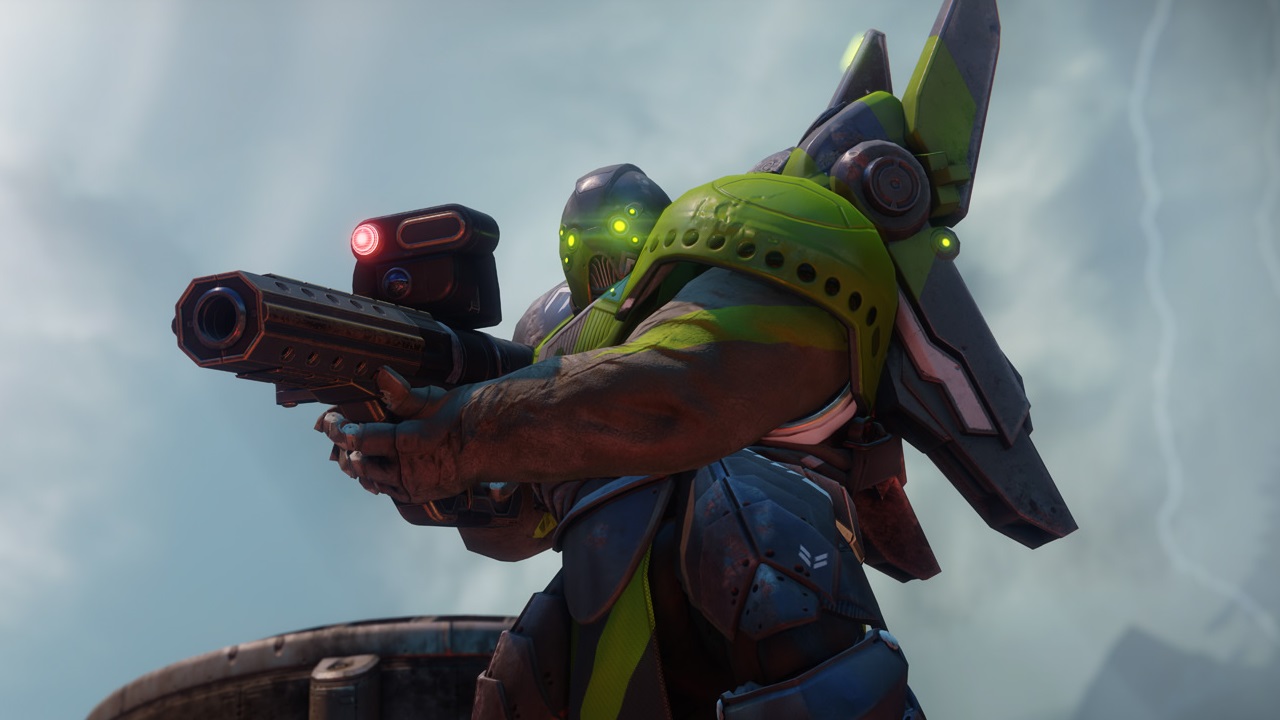
And then, of course, there’s that Raid. Leviathan, the first of Destiny 2’s grandiose, hours-long, six-player combat puzzle dungeons picks up the baton admirably and, although we haven’t finished it yet, has already more than justified its place. At their best, Destiny Raids are - systemically and in terms of team camaraderie - some of the best experiences in modern gaming. Uncompromisingly challenging, and brutally demanding of shooting skills, co-ordination, and lateral, deductive thinking, the process of deciphering and defeating a Raid should deliver a nourishing high and team bonding experience like no other. And while it would be deeply remiss of me to spoil anything – discovery, after all, is the whole point – even by just the third section, Leviathan’s grand, slightly more cinematic take on the Raid format has bestowed all of that in spades. Completing it is our team’s new life obsession, and will remain so until we emerge victorious. At which point we’ll certainly go back in for better gear.
And rounding off all of this brilliance are the many quality-of-life improvements marinating the entire Destiny 2 experience. Taking many cues from the ways its community played the first game, Bungie has instilled Destiny 2 with a plethora of over-arching systems that smooth any last hint of pain out of the journey. Clan support lets any player, whether running a packed-out friends list or playing solo, feel part of the community, and share in material rewards for cumulative success on a weekly basis. Guided Gameplay (currently in beta) finally opens the doors to high-level activities for everyone. Can’t put together a six-person Raid team? No problem. Just hook up with a clan taking part in the Guided program, and they’ll embrace you as one of their own for the duration.
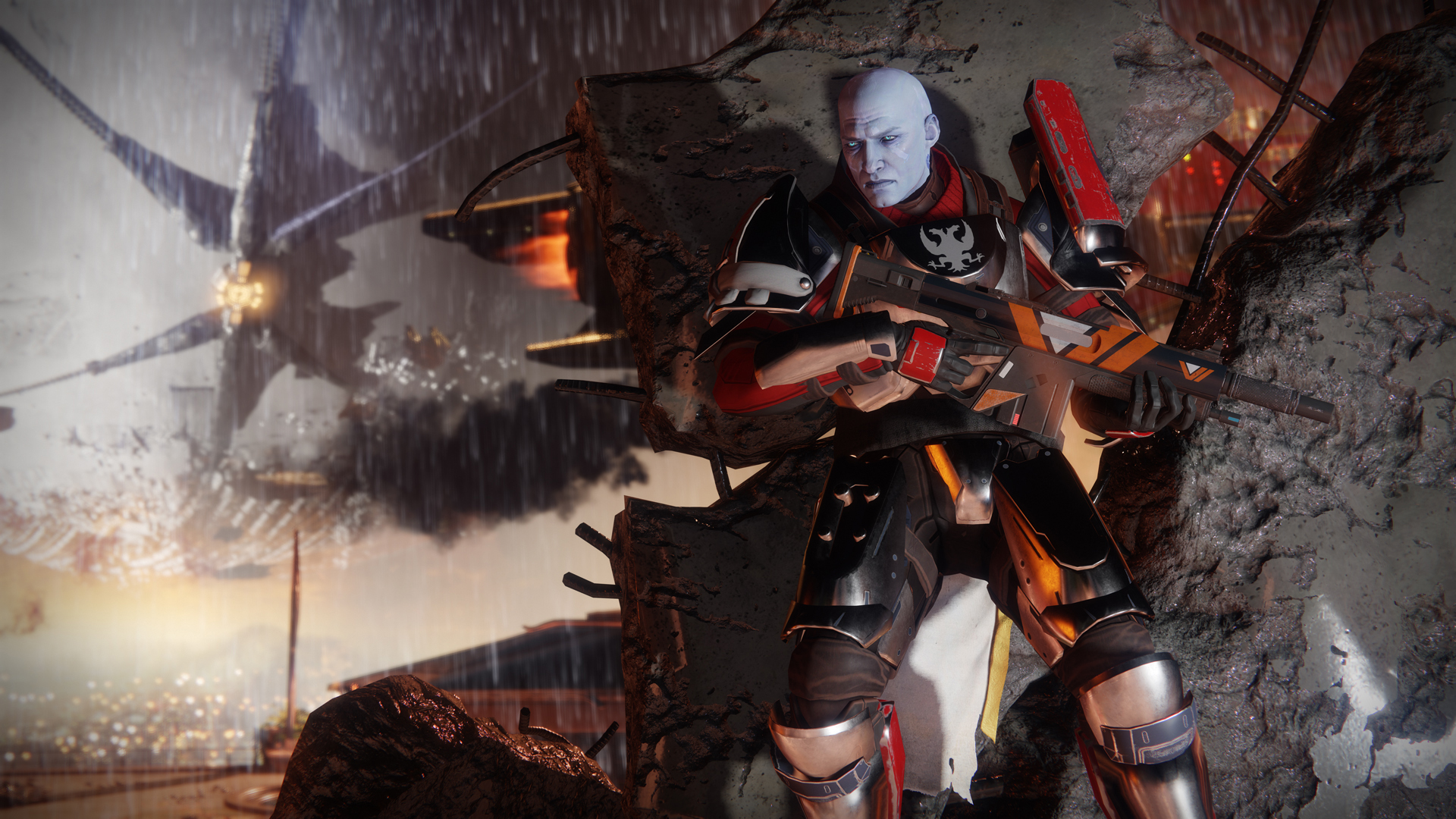
Looking to farm Public Events for XP and Tokens? Timers on the map (because there is actually an in-game map) will tell you exactly where and when they’re going to occur. And planet-specific challenges – which often dovetail with bigger, weekly Milestone tasks – will amplify their worth, and give you plenty of other profitable activities to engage in along the way.
This isn’t Destiny. This is something new. Something bigger, cleverer, richer, and much, much better. It’s the idea of Destiny evolved and elevated into something it has never been before. It’s Destiny set free. It’s Destiny democratised. It’s Destiny really allowed to live. I said at the end of my review of the first game that I was leaving a point off the score to leave space for the game’s potential to grow and improve. This time round, there’s no need. Destiny 2 is already much more than we ever imagined it would be.

